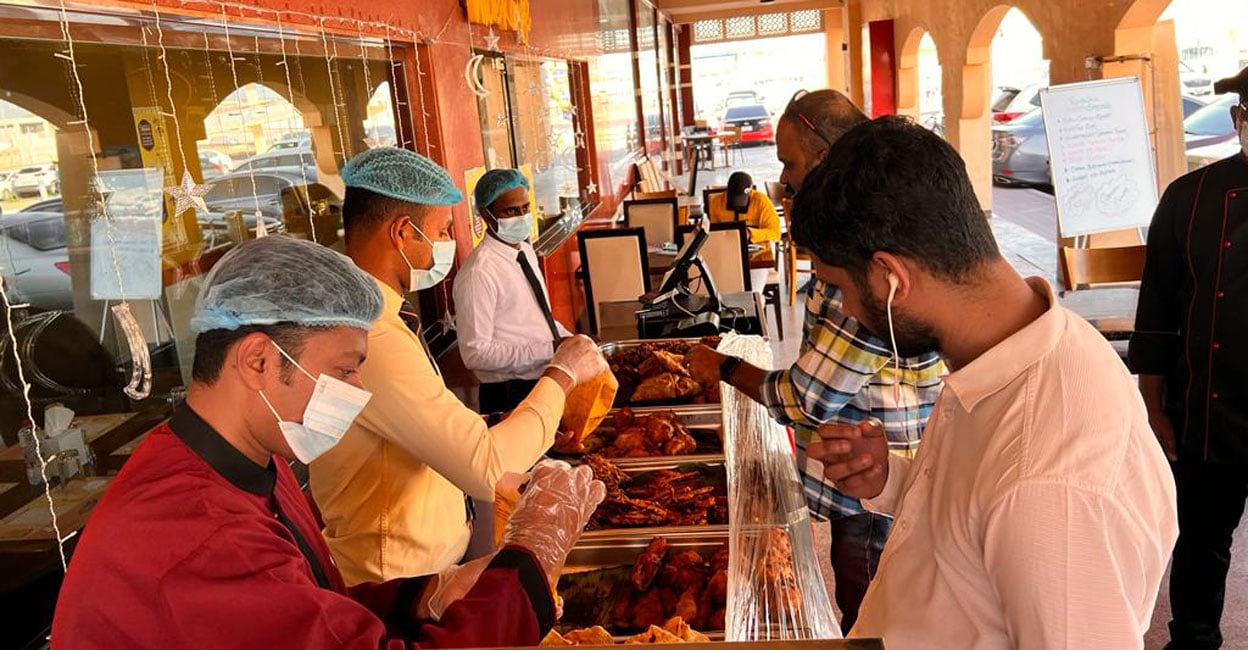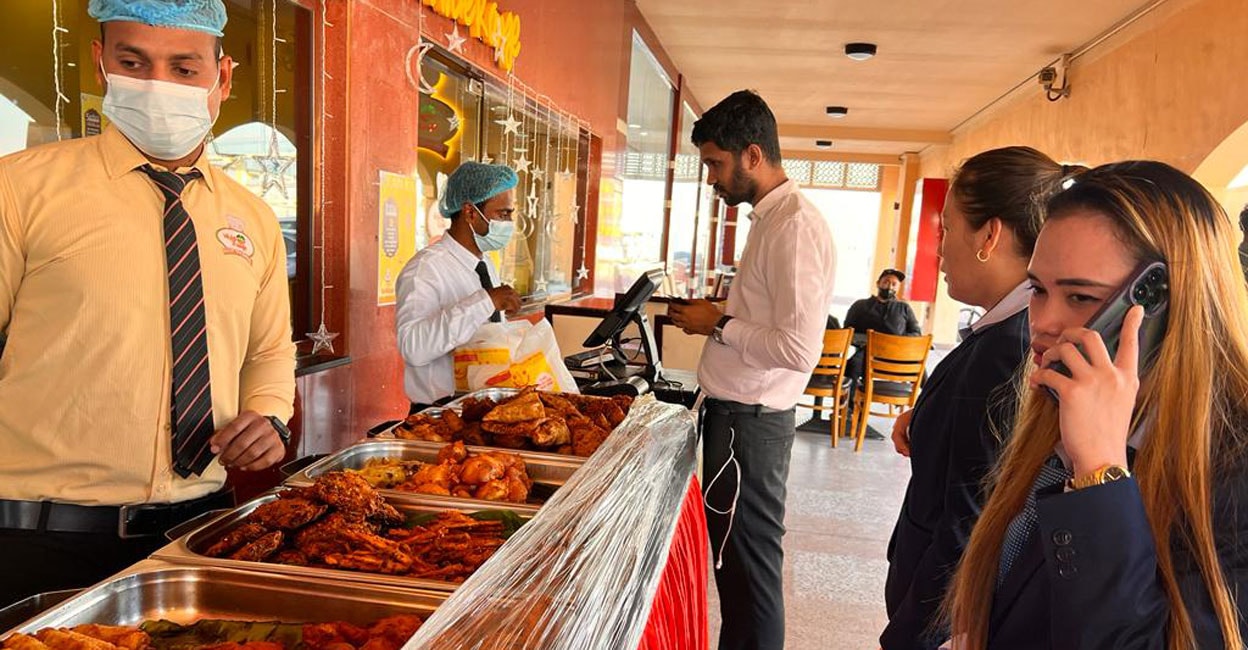Malabar snacks conquer Middle East's iftar party streets

Mail This Article
For Malayalis who are settled all over the world, iftar isn’t complete without enjoying a few delicious fried snacks. The fame of these iconic iftar snacks have not just reached other parts of India but are conquering the taste buds of foreigners too. The unique snacks of Malabar have already become popular in the Middle Eastern countries.
The cafeterias and restaurants run by Keralites, Pakistanis and Bangladeshis have become a haven of delicious iftar snacks, in the evenings during the Holy month of Ramadan. The snack shops, that have reopened after pandemic induced long break, are thronged by Keralites and foodies from other countries.
Even though everyone is curious to try various items, samosa is still the most popular item. From chicken, mutton and keema varieties to vegetable and Punjabi samosa, there are takers for all kinds of samosas. Meanwhile, cutlets and kunji pathiri are preferred by foreigners too.
The Kerala restaurants in the Middle East serve an array of dishes like the chicken roll, irachi pathiri, kunji pathal, fish pathal, egg pathal, irachi ada, ila ada, Madhura ada, fish ada, prawns ada, uzhunnu vada, onion fritters, banana fritters, pazham nirachathu, pazham vilayichathu, potato bajji, chili bajji, plantain fritters, unnakkaya, neyyappam, vattayappam, kallumakaya or mussels, sukhiyan, masala bonda, sweet bonda, many types of cutlets, elanchi and tharikanji.
Besides, some restaurants have come up with their own signature dishes too. Ammayi ada, kappa kozhikal, kilikoodu and pazham vilayichachu are some of them. Chef MS Sanoj of the Madeena Wide Range told Manorama Online that unnakaya, pakkuvada, banana fritters and irachi pathiri are the most popular items. His special kizhi biriyani and pollicha biryani too are hits among the foodies here.
The snacks are sold for 1 – 3 dirhams a piece. Before the pandemic, most snacks were sold for just a dirham. There are many who place orders beforehand for the iftar parties and gatherings. Besides Keralites and Philippines, the Russians who live in Deira and Karama too are admirers of these delicious iftar snacks.
Maneesh Mohan, manager of the Madeena Wide Range restaurant says that the crowds have been returning this year after the pandemic. He says that the snacks would be ready by afternoon. These dishes would be neatly arranged in front of the restaurant when the customers begin to arrive. Maneesh says that the snacks would be over within a few hours.
Pakistani dishes
Interestingly, Pakistani and Bangladeshi dishes too look and taste similar. Their pakkuvada, aloo keema, chappal kebab, kachori, aloo chips and dahi vada, pheni, kajala and falooda are extremely popular. Sweetened vermicelli is fried in oil to prepare pheni. Meanwhile, kajala is made with all purpose flour and sugar. Dahi vada made with fresh yoghurt, chickpeas and pakkuvada is a refreshing item. Meanwhile, falooda and jalebi are preferred by sweet lovers.

These dishes are mostly enjoyed by Keralites, Pakistanis, Bangladeshis, Sri Lankans, Philippines and Arabs too. Those who are not fasting too buy these snacks to enjoy with their evening tea.
The season of prosperity
There was a time when the streets of Dubai and Sharjah were lined with snack shops that sold special iftar dishes. It was an atmosphere of joy and camaraderie when everyone came together to enjoy good food. However, a few years ago, these street shops were closed down in Dubai owing to stricter food safety guidelines.
Later, the Sharjah administration too issued health guidelines stating that food items should only be exhibited inside glass shelves. Even though the street snack shops disappeared completely during the pandemic days, food could be sold inside the restaurant.
Food safety
Compared to the earlier days, food security guidelines have become stricter during the recent times. The snacks that are cooked in clean environment should be exhibited in glass shelves. Special permission should be sought from the authorities to sell food like this. The municipal authorities often conduct inspection to ensure food safety. Those who do not adhere to the rules are charged with hefty fines.

Earlier, street shops and eateries were a common sight in Dubai during the month of Ramadan. However, later, the authorities had closed them down. This year, restaurants in Dubai are allowed to open and serve delicious snacks to the customers.

